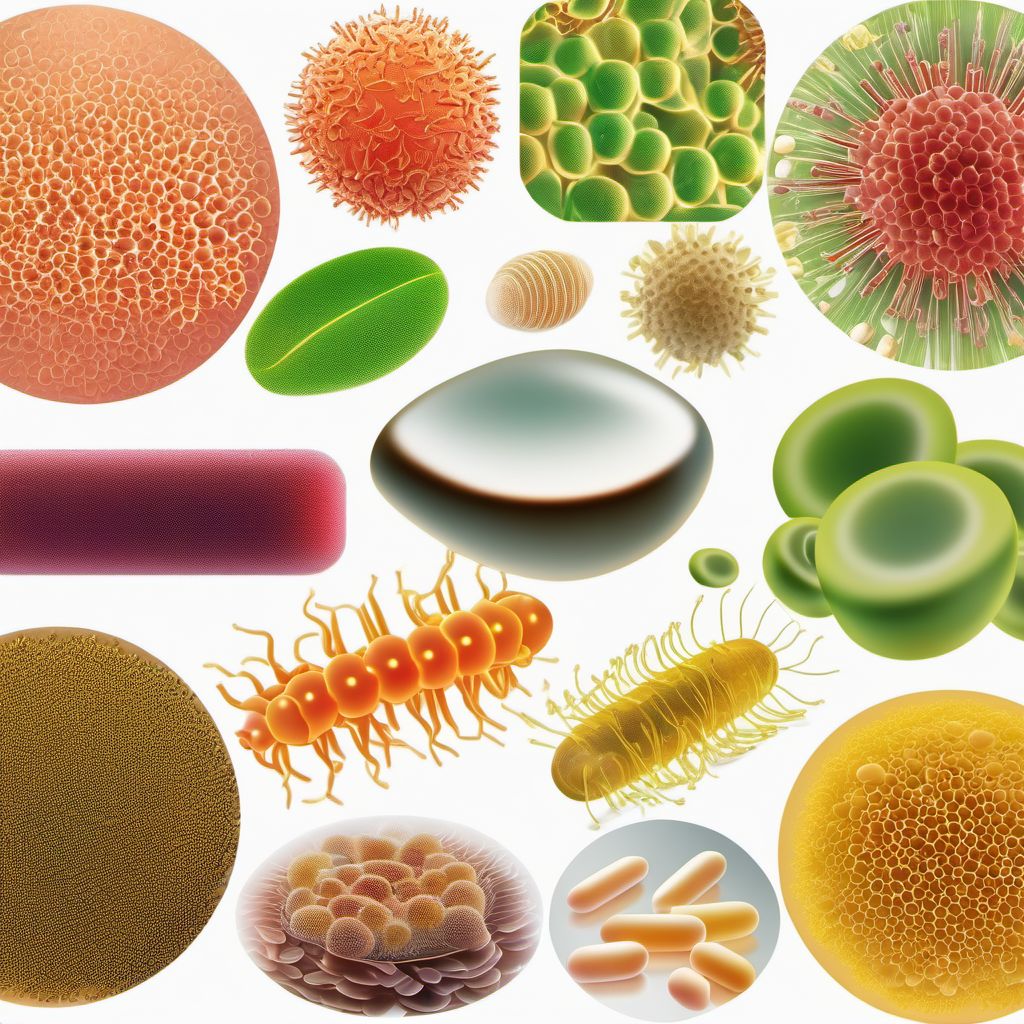
Other bacterial foodborne intoxications, not elsewhere classified Save
ICD-10 code: A05
Chapter: Certain infectious and parasitic diseases
Other Bacterial Foodborne Intoxications, Not Elsewhere Classified
Food poisoning is a common problem that affects millions of people every year. While most cases of food poisoning are caused by common bacteria such as Salmonella and E. coli, there are other bacterial foodborne intoxications that are not classified elsewhere. These types of food poisoning are less common, but they can still cause serious health problems.
Here are some examples of other bacterial foodborne intoxications:
- Bacillus cereus: This type of food poisoning is caused by a spore-forming bacteria that can be found in soil and dust. It is commonly found in rice, pasta, and other starchy foods that have been cooked and then left at room temperature for too long. Symptoms of Bacillus cereus food poisoning include vomiting, diarrhea, and abdominal cramps.
- Clostridium perfringens: This type of food poisoning is caused by a bacteria that is commonly found in meat and poultry. It usually occurs when food is cooked in large quantities and then left to cool slowly. Symptoms of Clostridium perfringens food poisoning include abdominal cramps and diarrhea.
- Staphylococcus aureus: This type of food poisoning is caused by a bacteria that is commonly found on the skin and in the nose of humans. It can be spread to food by people who handle it without washing their hands properly. Symptoms of Staphylococcus aureus food poisoning include vomiting, diarrhea, and abdominal cramps.
- Campylobacter: This type of food poisoning is caused by a bacteria that is commonly found in raw poultry and meat. It can also be found in unpasteurized milk and contaminated water. Symptoms of Campylobacter food poisoning include diarrhea, abdominal pain, and fever.
To prevent other bacterial foodborne intoxications, it is important to practice good food hygiene. This includes washing your hands before and after handling food, cooking food thoroughly, and storing food properly. If you suspect that you have food poisoning, it is important to seek medical attention immediately.
Overall, while other bacterial foodborne intoxications are less common than some of the well-known types of food poisoning, they can still cause serious health problems. By practicing good food hygiene and seeking medical attention if you suspect you have food poisoning, you can help protect yourself and your family from these types of illnesses.
Diagnosis Codes for Other bacterial foodborne intoxications, not elsewhere classified | A05
- A05.0, Foodborne staphylococcal intoxication
- A05.1, Botulism food poisoning
- A05.2, Foodborne Clostridium perfringens [Clostridium welchii] intoxication
- A05.3, Foodborne Vibrio parahaemolyticus intoxication
- A05.4, Foodborne Bacillus cereus intoxication
- A05.5, Foodborne Vibrio vulnificus intoxication
- A05.8, Other specified bacterial foodborne intoxications
- A05.9, Bacterial foodborne intoxication, unspecified